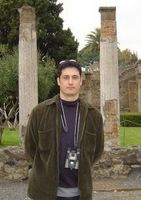On the fourth of July we most often invoke the founding of the country. And rightly so, but the story of July 1863 is as important if not more important to the country we have today.
From the very beginning, America was an idea, a dream, an amalgamation of all the dreams born of the European enlightenment: and a wistful harkening back to ancient Athens. It is easy to forget just how radical the Declaration of Independence, The Constitution and the Bill of Rights were and in much of the world today, still are.
The world had never seen a people some thoroughly codify and ennumerate the rights of the individual and so thoroughly ensure that government was to serve people rather than the reverse.
"We hold these truths to be self-evident, that all men are created equal, that they are endowed by their Creator with certain unalienable rights, that among these are life, liberty and the pursuit of happiness." - Thomas Jefferson

America was born of enlightenment and reason and baptised by blood and sweat. But, for all its beauty in youth it was born with some psychological and spiritual sicknesses. Our story is of the ongoing struggle to bring to fruition and to perfect the ideals that were layed bare for the world to see at our beginning.
Slavery, The Civil War, Civil Rights, Immigration. These words all properly conjure up struggle and pain and they indeed are part of the question we have always asked. "What does "all men are created equal really mean?"
On July 1,2,3, 1863, during the midst of the bitter Civil War, a battle was fought at Gettysburg, PA. It was the only battle to take place on Northern Soil. It was Lee's attempt at breaking the Army of the Potomac enough to force the North to settle for seperation and peace.

View from Confederate line at Seminary Ridge looking up at Cemetary Ridge. Pickett and his men made their charge across this feild. 12,000 men made the charge. 45 minutes later on 6,000 returned back across the field. Gettsyburg was over.
Pickett's Charge
It was a bloodbath. Twenty thousand casualties over three days. Six thousand alone on the Confederate side on Picket's charge on July 3.
To pay homage to these scarifices a newly consecrated soldiers national cememtary was to be opened on November 19. Lincoln was asked to provide some brief thoughts at the end of the program. He was not the featured speaker that day.
The featured speaker, Edward Everett (considered the premier orator of the day) gave a two hour speech and none of it is remembered today. Lincoln's speech lasted two minutes.
In 269 words delivered in just over two minutes, Lincoln invoked the principles of human equality espoused by the Declaration of Independence and redefined the Civil War as a struggle not merely for the Union, but as "a new birth of freedom" that would bring true equality to all of its citizens, create a unified nation in which states' rights were no longer dominant, defined democracy in terms of government of the people, by the people, for the people, and defined republicanism in terms of freedom, equality and democracy.
Allowing slavery to continue would be tantamount to declaring that the ideals of the Declaration were dead. It would take another 100 years for the victory of Gettysburg to become the true law of the land, but the ugliness of that struggle is as much a part of our story as any other. Two minutes. Two minutes that captured the spirit of what is now 231 year old dream. The finest words of a brilliant wordsmith.
Four score and seven years ago our fathers brought forth on this continent, a new nation, conceived in Liberty, and dedicated to the proposition that all men are created equal.
Now we are engaged in a great civil war, testing whether that nation, or any nation so conceived and so dedicated, can long endure. We are met on a great battle-field of that war. We have come to dedicate a portion of that field, as a final resting place for those who here gave their lives that that nation might live. It is altogether fitting and proper that we should do this.
But, in a larger sense, we can not dedicate -- we can not consecrate -- we can not hallow -- this ground. The brave men, living and dead, who struggled here, have consecrated it, far above our poor power to add or detract. The world will little note, nor long remember what we say here, but it can never forget what they did here. It is for us the living, rather, to be dedicated here to the unfinished work which they who fought here have thus far so nobly advanced. It is rather for us to be here dedicated to the great task remaining before us -- that from these honored dead we take increased devotion to that cause for which they gave the last full measure of devotion -- that we here highly resolve that these dead shall not have died in vain -- that this nation, under God, shall have a new birth of freedom -- and that government of the people, by the people, for the people, shall not perish from the earth.


